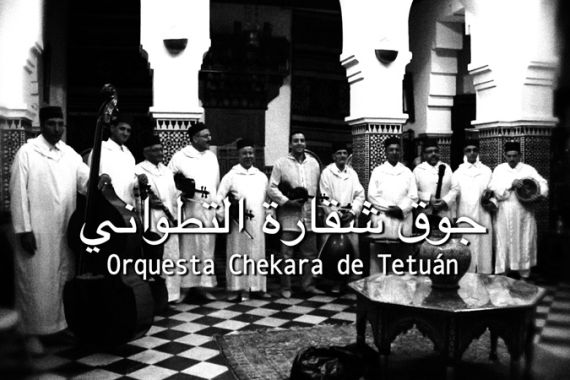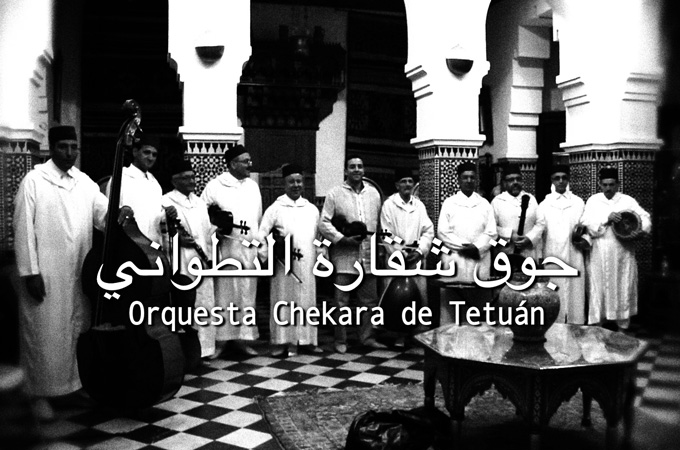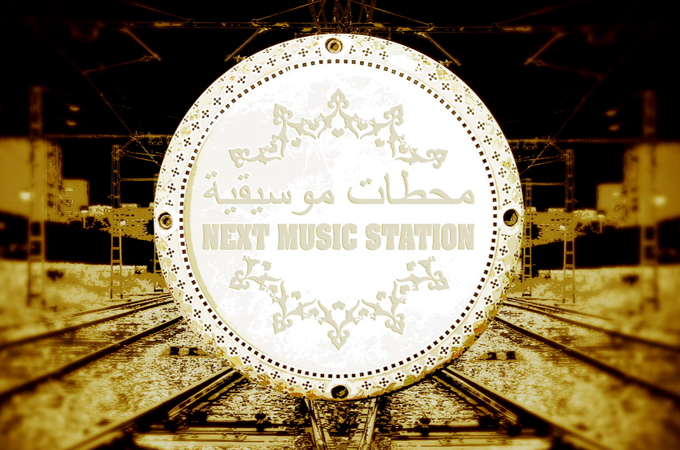
Orquesta Chekara de Tetuan
‘I adopted my uncle’s style of playing music and singing.’
 |
Jalal Chekara, the leader of Chekara Orchestra:
“We live here in Tetuan city, very close to Spain. We have relatives in Spain. I remember when I was young, I used to go with my mother to Spain a lot.
Keep reading
list of 4 itemsInside the pressures facing Quebec’s billion-dollar maple syrup industry
‘Accepted in both [worlds]’: Indonesia’s Chinese Muslims prepare for Eid
Photos: Mexico, US, Canada mesmerised by rare total solar eclipse
We always listen to Flamenco music here in Tetuan, because Spain’s southern bank is only seven kilometers away from us. We are deeply influenced by the Flamenco culture and the Andalusian culture in general.
It is said that the word Flamenco has an Arabic origin, which is the combination of two words fallah meaning ‘farmer’ and mancoob meaning ‘troubled’, because farmers used to work in farms under very difficult circumstances, and they used to sing to lift up their spirits. Due to differences in pronouncing the letters, the words fallah mancoob became Flamenco.
It is a family experience. I have started with my grandfather, who was a violinist. He is the one who established the Tetuan Music Centre. My uncle was also a music teacher at the centre, and later became a general supervisor.
The Chekara orchestra experience has continued since it was established in 1958.
I was born in 1974. I joined the music centre in 1984, when I was only 10 years old; and the Chekara orchestra in 1987 when I was 13 years old.
I adopted my uncle’s style of playing music and singing. When I was little, about three or four years old, I used to go with my father to the Zawya Harraqiya and I liked this type of music since then.
My uncle, the founder of the Chekara orchestra, passed away in 1998. I started to replace him in leading the orchestra two years before his death as he was old and sick. I officially became leader of the orchestra after his death.
I stayed like that until I received a work contract in Spain in 2000, and moved to Granada.
We play the violin instrument in accordance with the Rukba style. The Andalusian music is known for being played on the Rabab instrument. In the past, the Rabab was always played according to the Rukba style. There was also another instrument that looks like the violin. It used to be played during the era of Arab presence in Andalusia.
However, as the modern violin emerged, with its beautiful, clear sound, that instrument was abandoned and replaced by the violin. That is why the violin has become very important for us. The European audience likes the way we play the violin according to the Rukba style, as it enables us to play and sing at the same time, unlike classical music. Andalusian music is playing and singing at the same time, and that is why this way allows us to play Andalusian music with no difficulties.”
Next Music Station airs at the following times GMT each week: Tuesday: 2000; Wednesday: 1200; Thursday: 0100; Friday: 0600; Saturday: 2000; Sunday: 1200; Monday: 0100; Tuesday: 0600.Click here for more on the series. |
